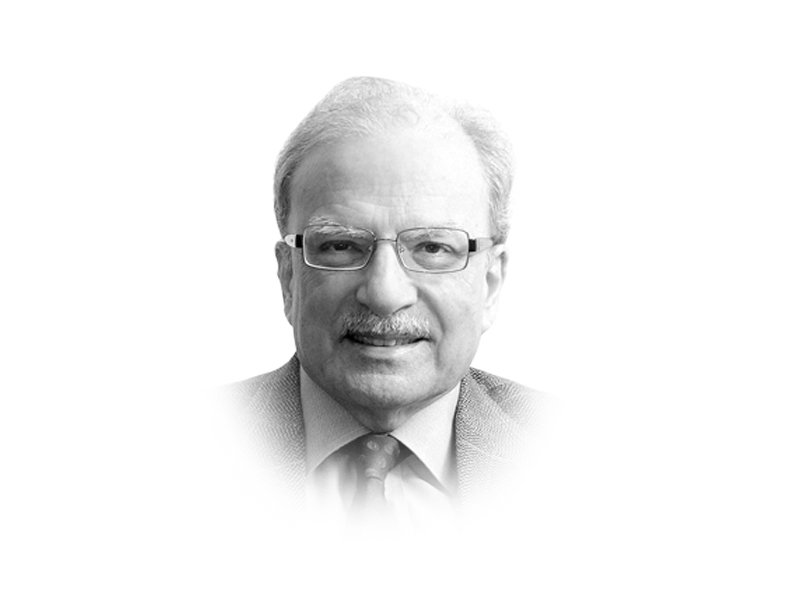
The most important departure which these two institutions will make is in the area of economic governance. The collapse of the Soviet Union in 1991 and that of European communism had led to the conclusion reached by policy circles in the West that liberal democracy and capitalism had prevailed. In a widely read book, the sociologist Francis Fukuyama called these developments the “end of history”. This line of thinking led to the formulation of what came to be called The Washington Consensus. This was the approach developed by the economists working at the IMF, the World Bank, and a number of Washington-based institutions. The main element in this approach concerned the role of the state vis-a-vis the private sector. The state was to limit its economic role to lightly administered regulations, leaving a great deal of space to private enterprise.
The euphoria resulting from the West’s triumph in the Cold War lasted for less than two decades. In 2007, the global economy plunged into what has come to be known as the Great Recession. The main reason for this near-depression was the way the financial system had operated in the US, Britain and a number of other Western nations. Preferring short-term gain over long-term social good, commercial and investment banks had sold products that were not financially and economically viable. Home-owners, who had borrowed more than they could afford, went under ushering in economic crises in a number of Western nations. That that could happen was predicted, among others, by Raghawan Rajan, who left his teaching position in the US to head the Reserve Bank of India, that country’s central bank. But these warnings went unheeded.
The Great Recession resulted in rethinking among a number of Western scholars, among them the French economist Thomas Piketty. In his book, Capital in the Twenty-First Century, Piketty argued that unchecked capitalism will lead to extreme inequalities. These, in turn, will result in social and political destabilisation. The Washington Consensus’ approach to the economic role of the state had to be refined. Since that was not likely to happen in the Bretton Woods institutions, the BRICS nations went about establishing their own entities. However, China went a step further. In early 2015, China announced the creation of the Asian Infrastructure Investment Bank (AIIB) to meet the large resource needs of Asian nations for improving physical capital. Beijing invited all nations around the world to join the new bank by becoming shareholders. The AIIB differed from the development banks such as the World Bank and the Asian Development Bank in two respects. It was to focus on one particular sector and it would invite both the public and private sectors to work together to create the needed infrastructure.
The US not only turned down the invitation to join hands with China, it actively campaigned against the establishment of the institution. Opponents to the new institution claimed that it would lend to dictators, damage the environment and hurt human rights. But as David Pilling of the Financial Times wrote in an article he titled, “A bank made in China and better than the western model”, it was possible that the new institution “will even exceed the standards of existing institutions. With 57 members, including Europeans such as the UK, Germany and Sweden, it is evolving fast and may end up entirely different institution from the one Beijing envisaged.”
The new bank will have initial capital of S100 billion, twice the amount Beijing planned on initially. As such it poses a serious challenge to the Tokyo-dominated Asian Development Bank (ADB) with capital of $150 billion. More than 75 per cent of the capital will come from Asian nations; about one-half from China. It is expected that the AIIB will move faster than the World Bank and the ADB. Even before becoming operational, the AIIB has already had an impact. The ADB has said that it will change its procedures and match the decision-making speed of the AIIB; Shinzo Abe, the Japanese prime minister, announced that his country will make $110 billion available for infrastructure projects in Asia; and Chinese President Xi Jinping included the AIIB’s likely disbursements in his pledge to provide Pakistan with $46 billion worth of investment for infrastructure development. The institutional battle is on and the capital-short countries such as Pakistan can take advantage of the resulting competition.
Published in The Express Tribune, June 8th, 2015.
Like Opinion & Editorial on Facebook, follow @ETOpEd on Twitter to receive all updates on all our daily pieces.


















COMMENTS (6)
Comments are moderated and generally will be posted if they are on-topic and not abusive.
For more information, please see our Comments FAQ